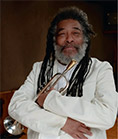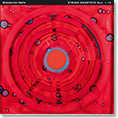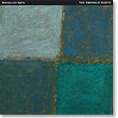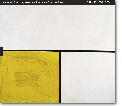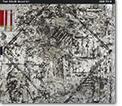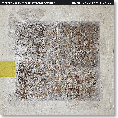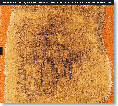THE MUSICIANS

Raoul Björkenheim was born in Los Angeles and lived in the United States until the age of 15. After finishing school in Helsinki, Finland, Björkenheim studied classical guitar at the Helsinki Conservatory in 1977 and 1978 and then studied at the Berklee College of Music from 1978 until 1981 returning to Finland after graduation. In 2001, Björkenheim moved to New York, which now is the permanent home for him and his family. Björkenheim has produced a broad body of works ranging from solo guitar pieces to a concerto for electric guitar, violin and symphony orchestra. In recognition of his work, Björkenheim has received a number of awards, including the Young Finland Prize in 1996, the Emma prize for the best Finnish jazz recording in 1992, and the Yrjö price of the Finnish Jazz Federation as the jazz musician of the year in 1984.
Björkenheim´s early influences ranged from Jimi Hendrix and B.B. King to Frank Zappa but gradually he broadened the scope of his interests to include John McLaughlin and John Coltrane on the way to developing his own, highly personal style. Björkenheim´s guitar playing has often been described as a force of nature, the conventional traits usually associated with jazz or rock having melded into a more visceral, expressionistic approach to creating timbre and velocities. Experimenting with various tunings on 6- and 12-string guitars, Björkenheim makes full use of the subtleties offered by electronics, often creating startling textures.
 Björkenheim´s early musical associations included Arbuusi, a
trio also featuring bassist Toppo Isopuro and drummer Tom Nekljudow,
which was active from 1976 until the 1980s, as well as Roommushklahn
with saxophonist Jone Takamäki, pianist Jarmo Savolainen, bassist Antti
Hytti and Nekljudow. Although Roommushklahn was only active for a
relatively brief period in the early 1980s, Björkenheim has continued
his cooperation with all of its other members over the years, including
in his own groups and, for example, Suhkan Uhka, the 12-member ensemble
that released its first recording on TUM Records in 2003 (Suhka, TUM CD
001), although Björkenheim had already moved back to New York by the
time of that recording.
Björkenheim´s early musical associations included Arbuusi, a
trio also featuring bassist Toppo Isopuro and drummer Tom Nekljudow,
which was active from 1976 until the 1980s, as well as Roommushklahn
with saxophonist Jone Takamäki, pianist Jarmo Savolainen, bassist Antti
Hytti and Nekljudow. Although Roommushklahn was only active for a
relatively brief period in the early 1980s, Björkenheim has continued
his cooperation with all of its other members over the years, including
in his own groups and, for example, Suhkan Uhka, the 12-member ensemble
that released its first recording on TUM Records in 2003 (Suhka, TUM CD
001), although Björkenheim had already moved back to New York by the
time of that recording.
Björkenheim´s breakthrough into international consciousness came through his membership in Edward Vesala´s Sound and Fury ensemble, which lasted for much of the 1980s and resulted in classic recordings for Vesala´s own Leo Records (Bad Luck, Good Luck, Leo 015, and Kullervo, Leo 017) as well as ECM Records (Lumi, ECM 1339). Björkenheim also participated in various spin-off projects arising from Sound and Fury, including Rinne Radio, led by saxophonist Tapani Rinne, as well as Krakatau, an experimental trio initially established with trombonist Jari Hongisto and Vesala, which gradually developed into a group lead by Björkenheim.
From 1986 through 1996, Krakatau went through different incarnations that each added to Björkenheim´s reputation as one of Europe´s leading guitarists within the realm of experimental improvisation. After two albums produced for the Hieronymus label in Finland (Ritual, KR1, and Alive, KRCD2), Krakatau made two well-received recordings for ECM Records (Volition, ECM 1466, and Matinale, ECM 1529), which featured the internationally best known version of Krakatau, including saxophonist Jone Takamäki, bassist Ulf Krokfors and either Alf Forsman or Ippe Kätkä on drums.
After Krakatau disbanded, Björkenheim has increasingly focused on composing and has been featured as a soloist both in his works composed for the UMO Jazz Orchestra and in other works composed either for a symphony orchestra or for smaller chamber ensembles. Björkenheim has also collaborated extensively with other experimental musicians including guitarists Nicky Skopelitis and Henry Kaiser, trumpeter Toshinori Kondo, keyboardist Paul Schütze, bassist Bill Laswell, drummer Ronald Shannon Jackson and many others. After moving to New York in 2001, Björkenheim worked for nearly a year with the Ethiopian singer Gigi. Currently, Björkenheim co-leads the Scorch Trio with bassist Ingebrigt Håker Flaten and drummer Paal Nilssen-Love (Scorch Trio, Rune Grammofon RCD2025).
 Lukas Ligeti was born in Vienna, Austria, and grew up
mainly in that city, though he lived in the United States for a year
during his childhood and maintained close ties to that country until
eventually settling there. He studied composition (with Erich Urbanner)
and jazz drums (with Fritz Ozmec) at the Vienna University for Music
and the Performing Arts and, upon the completion of his studies there,
spent two years (1994-1996) in California at Stanford University´s
computer music center. Since 1998, he has lived in New York City.
Lukas Ligeti was born in Vienna, Austria, and grew up
mainly in that city, though he lived in the United States for a year
during his childhood and maintained close ties to that country until
eventually settling there. He studied composition (with Erich Urbanner)
and jazz drums (with Fritz Ozmec) at the Vienna University for Music
and the Performing Arts and, upon the completion of his studies there,
spent two years (1994-1996) in California at Stanford University´s
computer music center. Since 1998, he has lived in New York City.
Ligeti only started playing music after graduating from high school, but quickly began developing his own voice. In the early days of his composition studies, he began working on a motion-based technique for playing polymetric patterns on the drums, along with a tabulature notation, and his compositions employ unusual concepts of polytempo interplay, with musicians sometimes being conducted by a computer relaying metronomic and other information to the players. Ethno-musicological recordings and analyses, especially of African music, and experimental mathematics were important early inspirations at the end of the 1980s, and around the same time, his interest in jazz led him to the music of the "downtown" New York avant-garde. On the whole, in his development and attitude as a composer, he probably has more in common with the so-called American "mavericks" (including composers like Charles Ives, Henry Cowell, Harry Partch, John Zorn and others) than with any European contemporary tradition.
While he was still a student, Ligeti´s works were being played by the London Sinfonietta and the Vienna Radio Symphony Orchestra; in the past eight years, he has been commissioned by the Kronos Quartet, Ensemble Modern, Vienna Festival, American Composers Forum and many others, and his music has been played by the Orchestre National de Lyon, San Francisco Contemporary Music Players, Kathleen Supové, the Amadinda Percussion Group and others at festivals worldwide.
Lukas´ first recording came out in 1991, with the band Things of NowNow (NowNowism, Extraplatte EX123), which he had co-founded with fellow composition students to explore the borderlines between composition and improvisation; his first release outside of Austria was with the group Kombinat M (Hybrid Beat, Cuneiform Rune 48) in 1993.
Arriving in San Francisco in 1994, he became increasingly active as an improviser, forging an ongoing musical relationship with guitarist Henry Kaiser and other California musicians, documented, among others, on "Heavy Meta" with the Goodman-Kaiser-Ligeti trio (Ecstatic Yod e#76) and on Henry Kaiser and Wadada Leo Smith´s "Yo Miles!" (Shanachie 5046). After moving to New York, he worked with Elliott Sharp, Ned Rothenberg, Daniel Carter, and others; he has also played with Gianni Gebbia, Benoît Delbecq, John Tchicai, Michael Manring and Chis Cutler, with electronic musicians Rupert Huber and Pyrolator Kurt Dahlke and with many others. Still, his main focus as a performer throughout the late 1990s was probably on solo concerts using electronic percussion. Since 2003, he co-curates "Freezone New York", a weekly series for improvised music, with guitarist Ty Cumbie.
Ligeti is also known as a pioneer in the area of experimental cultural exchange. Commissioned by the Goethe Institute, he traveled to Côte d´Ivoire in 1994 and founded the group Beta Foly with musicians from West Africa to explore the combination of African traditions and instruments with improvisation and electronics: this work can be heard on the 1997 recording "Lukas Ligeti & Beta Foly" (Intuition 3216). He has also performed with Batonka musicians in Zimbabwe; played in Mozambique and South Africa; collaborated with Nubian musicians at the Cairo opera; created a piece for Caribbean musicians in Miami; and, since 2000, worked on various projects with the singer Maï Lingani from Burkina Faso.
Recordings featuring Ligeti as a composer or improviser can also be found on Staubgold, Starkland, Naïve, Lotus Records, ORF Zeit-Ton, Ocho and a number of other labels.

